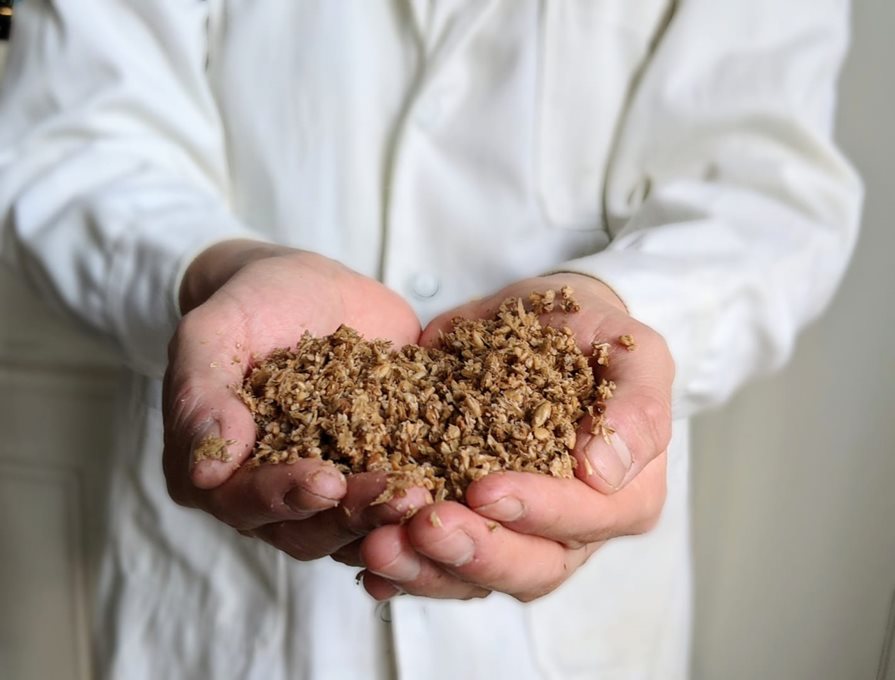How CFRIL and Terra Bioindustries are shaping the future of sustainable ingredients

Tracy Butt, M.Sc. (PI) Conestoga Food Research & Innovation Lab
Terra Bioindustries is a Toronto, Canada-based start-up designed to create multi-industry solutions from agrifood waste. Founded in 2019 by Ricardo Martinez and Steve George, Terra uses spent food by-products to support a circular economy through collaboration with brewing, grain processing, food manufacturing, and precision fermentation partners.
Two of their novel products, Protina and Recyclose, provide customers with plant-based alternatives to traditional ingredients while maintaining Terra's firm commitment to sustainability and a circular economy.
Building on their previous two projects with the Conestoga Food Research & Innovation Lab (CFRIL), Terra partnered with CFRIL to further develop and optimize Protina for distribution to other manufacturers. This new project investigated key ingredient traits for potential Protina customers, such as ingredient interactivity, recipe formulation, and protein quality.
As a plant-based protein, Protina reacts differently in recipes compared to traditional proteins such as soy, pea, or whey. Because of this, it was important for Terra to better understand how to blend Protina with other ingredients and proteins.
"When you look at a new formulation, you never know how it will work with other ingredients," said Tracy Butt, CFRIL researcher. "We needed to know if there was an improvement or decline in Protina as it interacted with other proteins."
One of the biggest challenges the research team faced was ensuring the protein didn't become diluted when it was mixed with other protein sources. This can be especially tricky with a product that is used in the bakery industry.
"We learned that other plant-based proteins struggle in bread," said Rebecca Palmer, chief marketing officer, Terra. "For example, adding soy can soften the dough, but Protina's advantage over traditional proteins is that it won't."
Using the protein digestibility-corrected amino acid score to evaluate the quality of Protina based on both the amino acid requirements of humans and their ability to digest it, CFRIL was able to identify recommendations for formula modifications.
With these recommendations, Terra was able to develop prototypes of products and give them to customers for their feedback. When customers had questions, Terra was able to go back to CFRIL and ask even more questions.
“We would get questions from customers and take them back to the CFRIL team. The amount of information and ideas that come up when they’re having a discussion, it’s stuff that we wouldn’t have known,” said Palmer.
The ability of the research team to pivot and explore new directions during the project was invaluable to Terra, but Palmer says the real bonus was the student involvement.
“There were times when the students would come up with ideas and make suggestions,” she said. “The students add their ideas, so there is always a new perspective built in throughout each project.”
With the recommendations from CFRIL, Terra has been able to further develop their plant-based protein, Protina. But they aren’t ready to stop there. Palmer says they are already looking at another partnership with CFRIL.
“With CFRIL, there is always a 'to be continued',” she said.
We acknowledge the support of the Natural Sciences and Engineering Research Council of Canada (NSERC).


